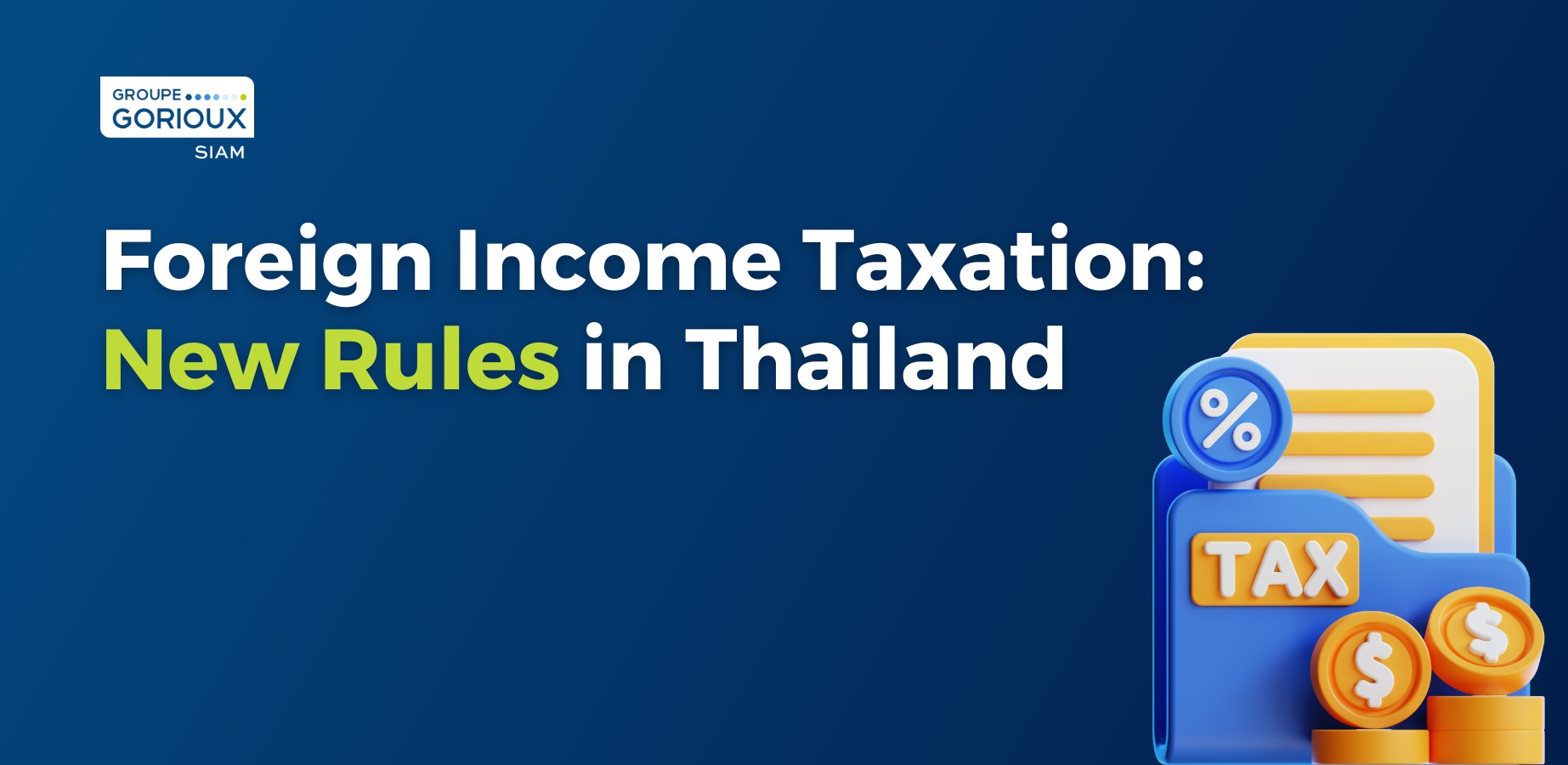On January 1, 2024, Thailand introduced new foreign income taxation criteria, marking a significant change for individuals residing in the country. Consequently, the new regulations stipulate that any foreign income brought into Thailand by residents who spend 180 days or more in the country must be declared and taxed. This requirement applies regardless of when the income was earned.
Key Changes in Foreign Income Taxation
The Thai Revenue Department’s new taxation rules mark a significant change from previous practices, directly impacting how foreign-sourced income is handled for tax purposes. Understanding these key changes is crucial for anyone who spends substantial time in Thailand and earns income from abroad.
1. Mandatory Declaration of Foreign Income
Who is affected?
• Individuals who spend 180 days or more in Thailand during a calendar year.
What needs to be declared?
• Any foreign-sourced income brought into Thailand, whether earned in the current tax year or a previous one.
Why the Change?
• This regulation replaces the previous rule that allowed foreign income brought into Thailand to be exempt from taxation, provided it was earned in a different tax year.
2. Income Types Subject to Tax
- Foreign employment income: Wages earned from duties performed outside Thailand.
- Business income: Profits from businesses conducted abroad.
- Investment income: Dividends, interest, and royalties from foreign sources.
- Asset income: Profits from the sale of overseas assets.
3. Timing of Taxation
- Previous rules: Income had to be brought into Thailand in the same tax year it was earned to be taxable.
- New rules: Starting from January 1, 2024, foreign-sourced income is taxable upon being transferred to Thailand, regardless of the year it was earned.
Practical Implications
The introduction of these new taxation criteria doesn’t just change the law; more importantly, it also has significant real-world implications for both individuals and businesses operating in Thailand. Whether you are an expatriate, a long-term resident, or a company employing international workers, it’s therefore essential to fully comprehend how these changes could impact your financial planning and tax obligations.
1. For Individuals
- Increased tax liability: Individuals who have long relied on Thailand’s previous tax exemption for foreign income will now face increased tax obligations.
Example: A person who has lived in Thailand for over 180 days annually and has foreign income accumulated over the last decade will now have to declare and pay taxes on this income if brought into Thailand.
- Record-keeping: Proper documentation is crucial to prove the timing of income generation, particularly for income earned before 2024.
2. For Businesses
- Compliance requirements: Companies with employees who earn income abroad must ensure proper record-keeping and accurate tax reporting when such income is transferred to Thailand.
- Impact on expats: Expatriates residing in Thailand for more than 180 days a year will need to incorporate these tax obligations into their financial planning.
- Adjusting global mobility programs: Companies with tax equalization policies for international assignees may need to revise their strategies to account for the new taxation criteria.
Tax Treaty Considerations
Thailand’s network of bilateral tax treaties, therefore, can offer a potential relief mechanism against the new taxation burdens. Specifically, these treaties are designed to prevent double taxation and provide clarity on which country has the taxing rights over foreign income. However, the applicability of such treaties, however, depends on the specific circumstances of the taxpayer.
Relief from Double Taxation
- Bilateral tax treaties: Thailand has tax treaties with several countries that may provide relief from double taxation on foreign-sourced income.
- Application of treaties: These treaties might allow for tax exemptions or reduced tax rates, depending on the country of origin of the income and the terms of the treaty with Thailand.
- Strategic planning: Individuals and businesses should consult with tax professionals to determine whether these treaties can help mitigate the impact of the new regulations.
Compliance Strategies
Adapting to the new taxation rules requires more than just awareness, it necessitates strategic planning and proactive measures. Whether you’re an individual taxpayer or a business managing employees with foreign income, staying compliant with the latest regulations is essential to avoid penalties and optimize your tax liabilities.
1. Regular Review of Income Sources
- Ongoing monitoring: It is essential for individuals and businesses to regularly review foreign income sources and the timing of when such income is brought into Thailand.
- Tax planning: Consider deferring or accelerating the transfer of foreign income into Thailand based on the new taxation rules.
2. Consulting with Tax Advisors
Specialist advice: Navigating these new regulations requires a deep understanding of Thai tax law and international tax treaties. Engaging a tax advisor with expertise in these areas is highly recommended.
3. Documenting Income Earned Before 2024
Proof of timing: Ensure that you have clear documentation to prove that any foreign income brought into Thailand was earned before 2024, as this may influence its tax treatment.
The new taxation criteria for foreign-sourced income in Thailand represent a fundamental shift in how income is taxed for residents who spend significant time in the country. While this change increases the tax burden, understanding applicable tax treaties can help mitigate the impact. Both individuals and businesses must be proactive in their tax planning, record-keeping, and compliance efforts to adapt to these new regulations.
At Gorioux Siam, we have the expertise to help you stay compliant and optimize your tax strategy. For personalized guidance or any questions, don’t hesitate to contact us. We’re here to assist you every step of the way.

